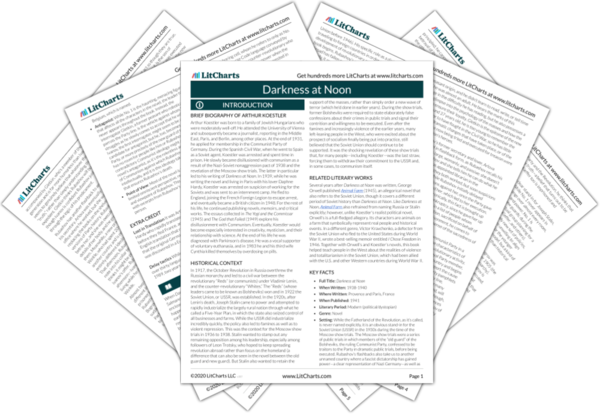Gletkin Quotes in Darkness at Noon
Gletkin read straight on, stiffly and with deadly monotony. Did he really believe what he was reading? Was he not aware of the grotesque absurdity of the text?
“If one told the people in my village,” said Gletkin, “that they were still slow and backward in spite of the Revolution and the factories, it would have no effect on them. If one tells them that they are heroes of work, more efficient than the Americans, and that all evil only comes from devils and saboteurs, it has at least some effect. Truth is what is useful to humanity, falsehood what is harmful.”
“The policy of the opposition is wrong. Your task is therefore to make the opposition contemptible; to make the masses understand that opposition is a crime and that the leaders of the opposition are criminals. That is the simple language which the masses understand. If you begin to talk of your complicated motives, you will only create confusion amongst them.”

Gletkin Quotes in Darkness at Noon
Gletkin read straight on, stiffly and with deadly monotony. Did he really believe what he was reading? Was he not aware of the grotesque absurdity of the text?
“If one told the people in my village,” said Gletkin, “that they were still slow and backward in spite of the Revolution and the factories, it would have no effect on them. If one tells them that they are heroes of work, more efficient than the Americans, and that all evil only comes from devils and saboteurs, it has at least some effect. Truth is what is useful to humanity, falsehood what is harmful.”
“The policy of the opposition is wrong. Your task is therefore to make the opposition contemptible; to make the masses understand that opposition is a crime and that the leaders of the opposition are criminals. That is the simple language which the masses understand. If you begin to talk of your complicated motives, you will only create confusion amongst them.”











